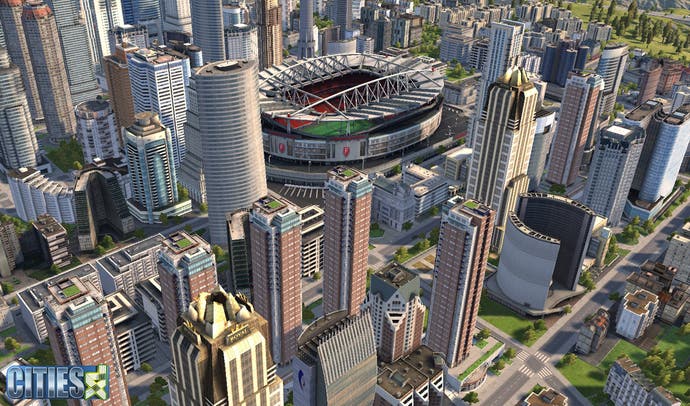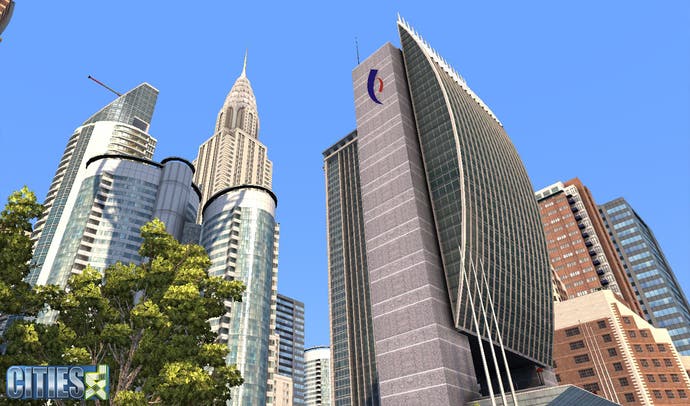Cities XL
The world's first social city-sim.
Cities XL is not an MMO game in the traditional sense of the term - but then, it's not traditional. Its ambitious aim is to exist simultaneously as an ordinary, offline, single-player city-building simulator, and online as a massively multiplayer version of the same thing, maintaining a completely player-dependent global economy and a community big and dedicated enough to make it work.
It's a complicated business strategy; developer MonteCristo expects the vast majority of Cities XL's money will be made from paid subscribers, but rather than crippling the out-of-the-box product in order to force players to take the game online, the idea is to provide a different enough experience to justify a monthly charge of 5 Euros. Offline players will be tantalised with updates and information about new content and important global events on the game's title screen, which shows the entire globe before zooming into your own city, but apart from that, no internet connection will be needed to enjoy the full scope of Cities XL's impressively comprehensive city-building and management tools.
Those tools really are impressive. Buildings, bridges and roads all materialise in real-time as you click and drag, adapting to the terrain. It's not based on a grid system, so there's more flexibility and less finicky positioning than we're used to from games of this type. Out of the box, there will be about 500 different building types to play with, and several different types of terrain which affect which resources are available to your city.

The customisation options are, naturally, absolutely vast. Cities XL's beta-testing community is evidently very vocal about exactly what they want, and the developer has obliged by incorporating a phenomenal amount of detail and flexibility into the city-building. You can zoom right in to street level anywhere in your city - or in anyone else's city, online - and even customise exactly how much traffic you'll see tearing down the highway at particular times of day. We didn't get the chance to go hands-on with the customisation tools, but even in the short time we had with the game we saw a good variance in architectural styles. There's definitely enough content to satisfy the demands of dedicated city-tinkerers, and the developer plans to support the game after launch with regular new buildings and other content.
In addition to the regular city-building, you can undertake special missions - 'gems', as the game refers to them - which challenge you with particular objectives; the one we were shown involved building a profitable ski resort, either by making it popular and accessible, or geared towards moneyed ski connoisseurs. Starting from scratch, you have to build up the resources and pick a location before building up the resort, building the slopes and labelling them according to difficulty. A special tab on the game interface keeps track of your progress, and naturally the rest of the city continues to exist without your attention.

It reminded us a lot of Rollercoaster Tycoon, right down to the impish impulse to trap people on a hellish slope by labelling it as Easy and then 'accidentally' deleting the exit. Happy memories. The gems certainly provide a change of pace, and will be available to select and download for free - to non-subscribers as well as subscribers, if we understood correctly.
What subscribers get for their money is, essentially, a completely different city-building game. You're allowed five cities with each account, but you can't simply import your offline city into the online world - that would be cheating. Instead, you choose a location on the in-game world, which again affects the resources available to your city according to terrain and which trading partners are nearby, and try to make your mark on the player-dependent economy.


.png?width=291&height=164&fit=crop&quality=80&format=jpg&auto=webp)




.jpg?width=291&height=164&fit=crop&quality=80&format=jpg&auto=webp)
